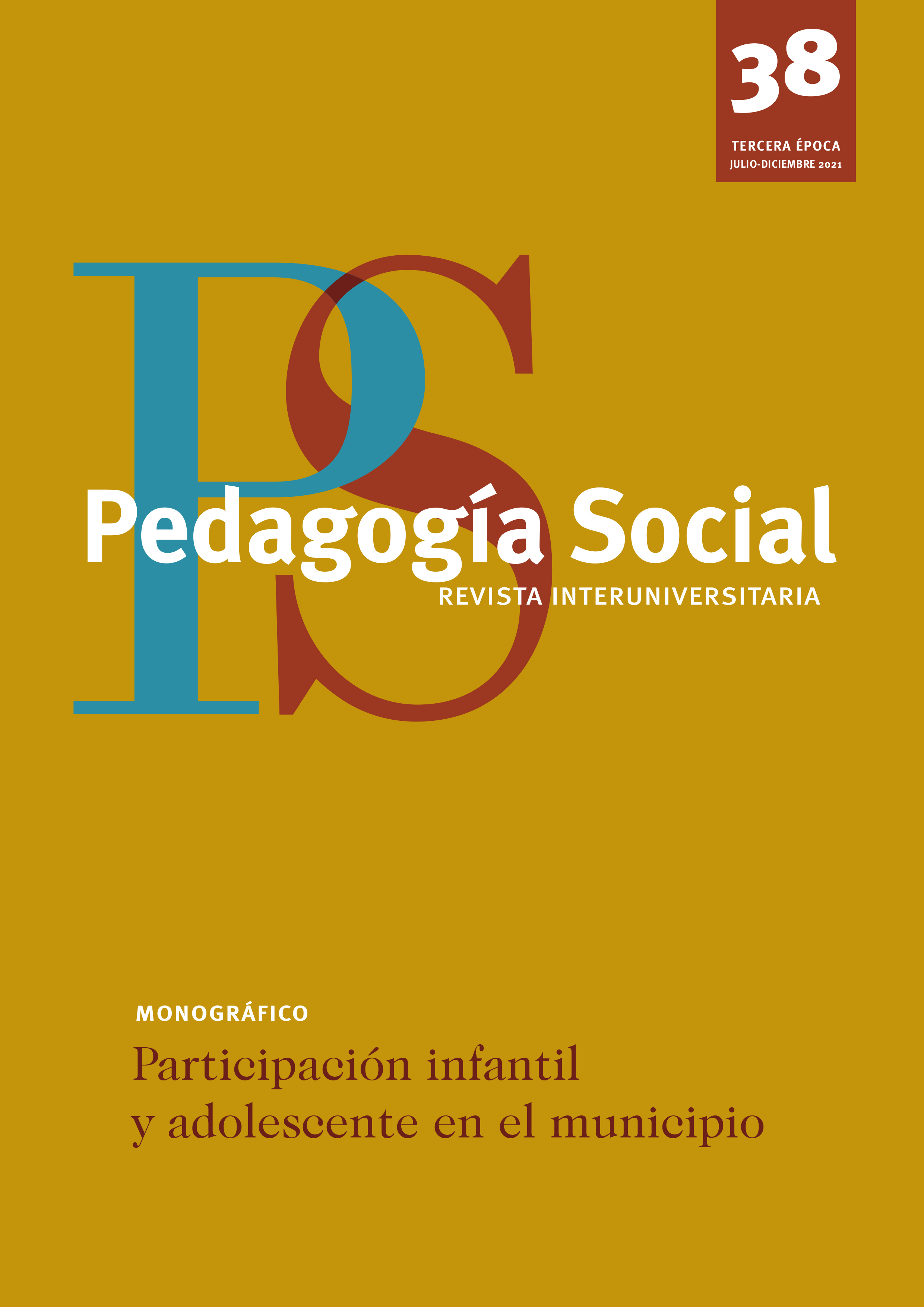Mirando al pasado - mirando al futuro: mensajes de profesionales sociales experimentados a los recién calificados
DOI:
https://doi.org/10.7179/PSRI_2021.38.10Palabras clave:
Profesionales sociales que trabajan con niños y familias, trabajadores seniors experimentados, trabajadores recién graduados, valores profesionales, formación en el área social.Resumen
Este artículo examina brevemente, en primer lugar, el conocimirnto existente sobre los profesionales del ámbito social que están comprometidos al trabajo con infancia y familias a largo plazo. A continuación, informa acerca de las respuestas a un cuestionario de preguntas abiertas sobre los mensajes que transmitirían a quienes inician la profesión. El cuestionarió se ha pasado a 32 trabajadores sociales y educadores, de 9 países distintos, con una larga experiencia acreditada. El objetivo del análisis de este tema es conocer las motivaciones, recompensas y estrategias que se asocian a quienes, en diferentes países y contextos, se mantienen comprometidos con la profesión y encuentran satisfacción en el trabajo social con niños y familias. Si bien el artículo identifica temas similares a los tratados en publicaciones anteriores, que abordan las razones de la permanencia o del cambio en este ámbito profesional, en nuestro caso se agregan, además y considerando las limitaciones de las comparativas existentes, informes precisos sobre la trayectoria de los profesionales que desarrollan su labor, a lo largo de mucho tiempo, en estos ámbitos de trabajo.
Descargas
Descargas
Publicado
Cómo citar
Número
Sección
Licencia
Derechos de autor 2021 Pedagogía Social. Revista Interuniversitaria

Esta obra está bajo una licencia internacional Creative Commons Atribución-NoComercial-CompartirIgual 4.0.
Derechos de reproducción y archivo
La versión publicada de los artículos podrá ser autoarchivada por sus autores en repositorios institucionales y temáticos de acceso abierto. No obstante la reutilización total o parcial de los mismos en nuevos trabajos o publicaciones deberá ser autorizada por Pedagogía Social. Revista Interuniversitaria.
Los trabajos publicados deberán ser citados incluyendo el título de la Revista, Pedagogía Social. Revista Interuniversitaria, nº, páginas y año de publicación.
Responsabilidades éticas
Pedagogía Social. Revista Interuniversitaria no acepta material publicado anteriormente en otros documentos. Los/as autores/as son responsables de obtener los permisos oportunos para reproducir parcialmente material de otras publicaciones y citar correctamente su procedencia. Estos permisos deben solicitarse tanto al autor/a como a la editorial que ha publicado dicho material.
Es obligación de Pedagogía Social. Revista Interuniversitaria detectar y denunciar prácticas fraudulentas.
En la lista de autores/as firmantes deben figurar únicamente aquellas personas que han contribuido intelectualmente al desarrollo del trabajo.
La revista espera que los/as autores/as declaren cualquier asociación comercial que pueda suponer un conflicto de intereses en conexión con el artículo remitido.
Los autores deben mencionar en el manuscrito, preferentemente en el apartado del método, que los procedimientos utilizados en los muestreos y controles han sido realizados tras la obtención de consentimiento informado.
La revista no utilizará ninguno de los trabajos recibidos con otro fin que no sea el de los objetivos descritos en estas normas.
Aviso de derechos de autor/a
© Pedagogía Social. Revista Interuniversitaria. Los originales publicados en las ediciones impresa y electrónica de esta Revista son propiedad del Pedagogía Social. Revista Interuniversitaria, siendo necesario citar la procedencia en cualquier reproducción parcial o total.
Salvo indicación contraria, todos los contenidos de la edición electrónica se distribuyen bajo una licencia de uso y distribución “Creative Commons Reconocimiento-No Comercial 3.0 España” (CC-by-nc). Puede consultar desde aquí la versión informativa y el texto legal de la licencia. Esta circunstancia ha de hacerse constar expresamente de esta forma cuando sea necesario.






